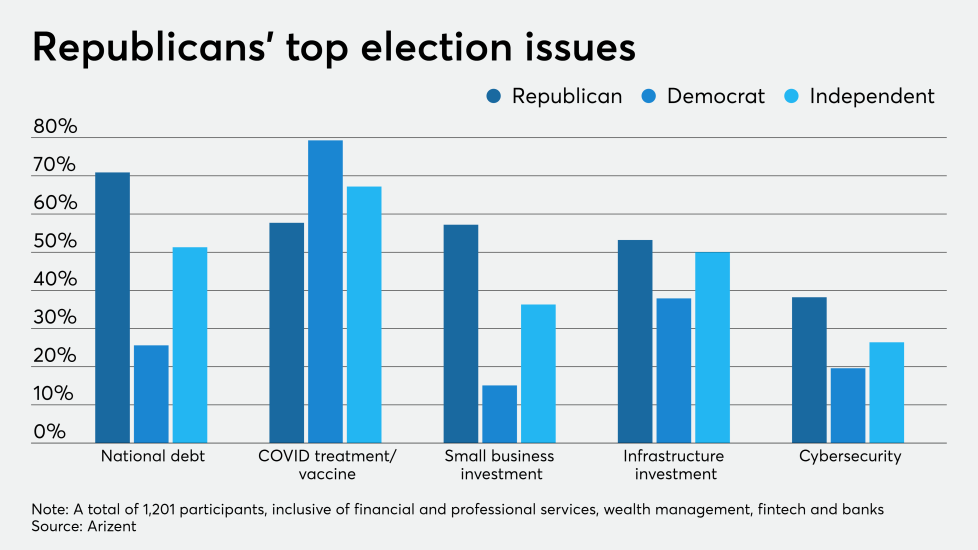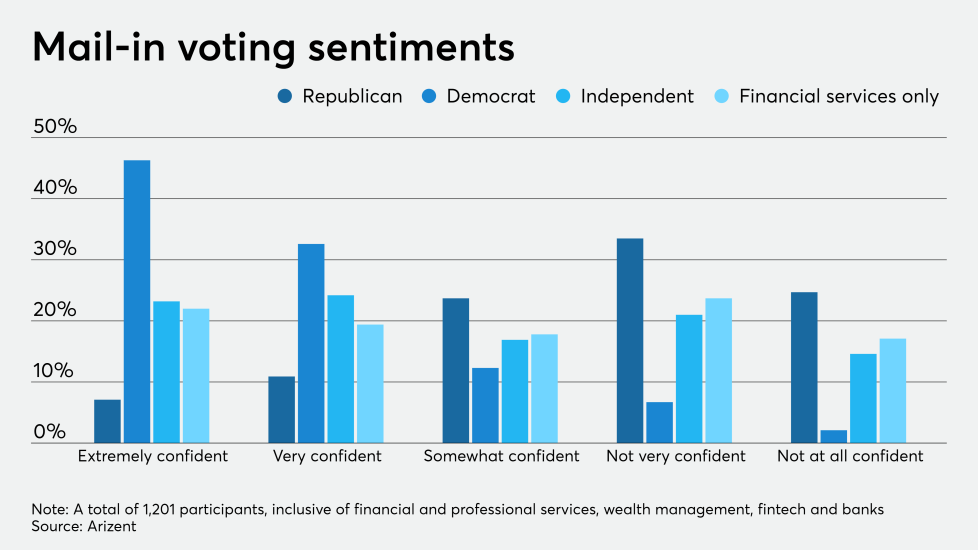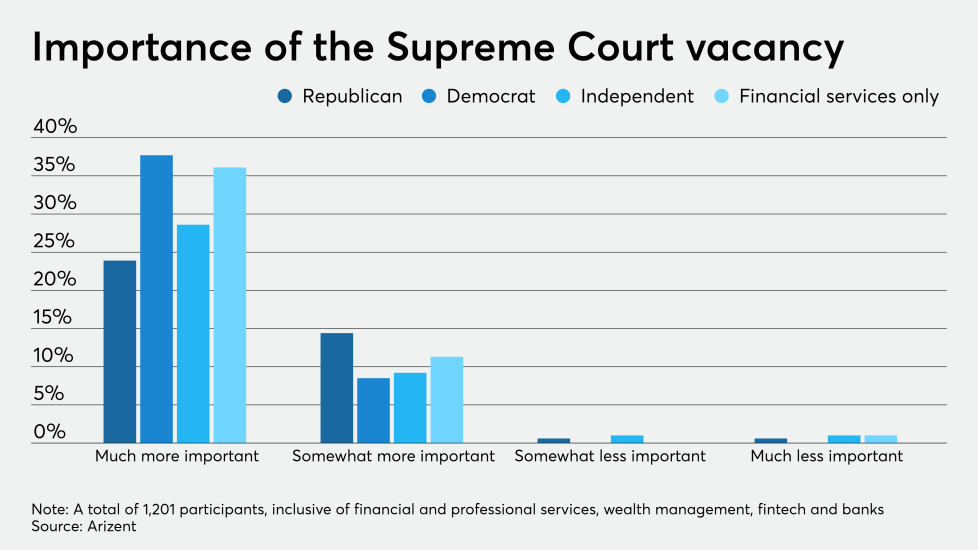As the 2020 U.S. presidential election looms, business leaders are contemplating two outcomes that could drastically alter the markets in which they work, with the winner shaping policies that will reverberate within lending and housing for years to come.
Arizent — the parent company of National Mortgage News — conducted a survey on the 2020 presidential election from Sept. 17 to Sept. 22, polling mortgage lenders, banks, accounting and payments firms, insurance agencies, municipal finance agencies, wealth management and others. A total of 1,201 industry professionals participated.
The findings revealed a sharply divided group, with Republican and Democratic factions expressing strong opposition to the other party's viewpoints. Priorities, too, vary greatly across party lines.









